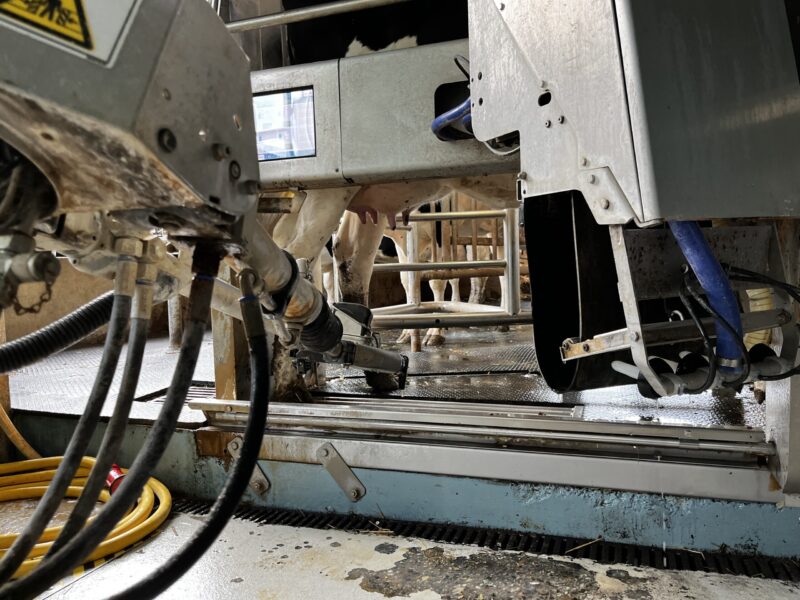The technology at Mill Farm Dairy in Tharston, near Long Stratton, was demonstrated to visitors at an open day during Agri-Tech Week – a series of events across the region, promoting new farming research and innovations.
Mark Barnes runs the farm’s herd of 180 Holstein cows with his partner Jess Aldridge and his father John, along with two part-time staff.
He installed three DeLaval milking robots in 2018 after a move from two to three milkings per day began to stretch the farm’s manpower.
Rather than fixed milking times, the automated voluntary milking system (VMS) means the cows decide when to come in.
The machines automatically recognise each animal from an ID chip in her ear tag, before the laser-guided robotic arms locate the teats and apply the milking cups.
The milking status and yield of each cow are recorded and can be monitored remotely via a smartphone app, which can also identify peak fertility periods and alert the user to health problems such as mastitis.
Mr Barnes said most of his cows, on average, now voluntarily come in for milking three times a day.
“Our yields have gone up, we are now just shy of 11,000 litres as an [annual] average per cow, compared to about 9,800 litres before,” he said.
“Also, the mastitis is a lot better, the cows are a lot healthier. There is a lot more data coming online. I can see what is going on with each cow and if she crashes, I will get an alarm.”
Mr Barnes said he decided to make the long-term investment of almost £300,000 after seeing his friend and fellow dairy farmer Jonny Burridge using a similar robotic system at Fundenhall, near Wymondham.
Mr Burridge was also at the open day, hosted by the Royal Norfolk Agricultural Association (RNAA).
While it is currently estimated that 10pc of the UK’s dairy cows are milked robotically, he said it is inevitable that more will follow.
“If you look back over the last 20 years, there have been so many other things that have happened that have made this type of technology more viable, like driverless cars with all their cameras and sensors,” he said. “Who knows what the next 10-20 years will hold with artificial intelligence?
“The way these robots learn the cows, it is a given that this is going to happen – it is when, not if.”
Article by Chris Hill, EDP Agricultural Editor








